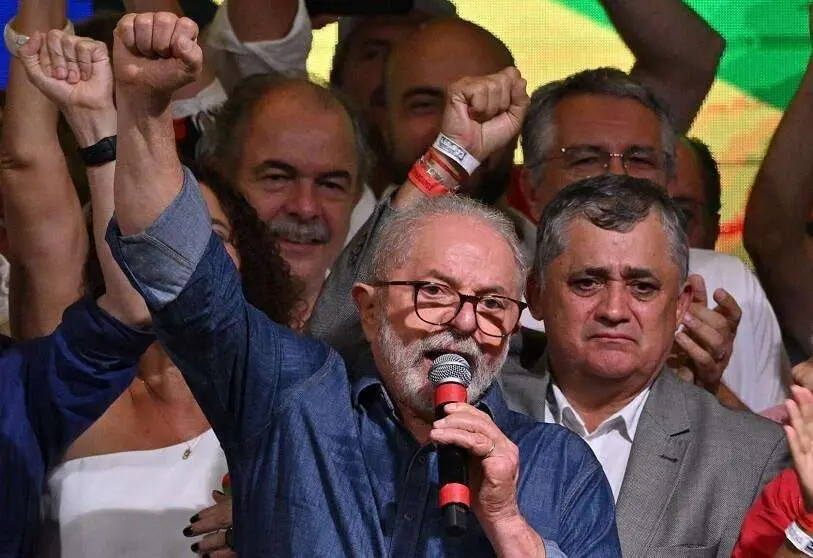Reviving Celac and installing a common Latin American currency

Logically, Brazilian President Lula da Silva's first foreign visit was to his traditional competitor and neighbour to the south, the Argentina of Alberto and Cristina Fernández. His own bilateral summit, full of good intentions and theoretically great projects, also preceded the VII Summit of the Community of Latin American and Caribbean States (CELAC), an organisation that integrates all the countries of the continent except the United States and Canada, born in 2010 to counteract the Organisation of American States (OAS), then considered by Cuba, Venezuela and even the Brazil of the first Lula as a forum at the exclusive service of Washington.
Lula has great ascendancy over the continent's current leaders, most of them embedded in a leftism that is sliding dangerously towards the extreme. It is this moral authority that both the United States and the European Union are relying on to put this drift back on track, re-establish common projects and halt or at least lessen China's influence in Latin America.
The possible resurrection of Celac would depend in large part on Brazil's leadership. Its absence during Jair Bolsonaro's mandate demonstrated the weakness of an organisation whose creation Lula himself contributed to, but which was capitalised on especially by Hugo Chávez, who thus took the baton from Fidel Castro's Cuba in his fierce antagonism against "North American imperialism".
Celac enjoyed a certain splendour during the summits attended by presidents Dilma Rousseff and Cristina Fernández of Brazil and Argentina, respectively, and when the stench of corruption driven by the powerful Odebrecht was spreading throughout the continent. It went into crisis in 2018 despite the attempts of Mexico's López Obrador, who at the Mexico City summit in 2021 was only able to bring together the most extreme members of the Latin American left. Now, at the Buenos Aires summit, it was all praise for Lula's return to the helm of Brazilian politics, and the old proclamations 'against the US blockade of Cuba', a lot of victimhood and not a few unfulfilled promises to 'work for all Latin Americans'. In contrast, only Uruguay's President Lacalle Pou remembered the violation of human rights in Venezuela, Cuba and Venezuela. And only Paraguay's Mario Abdo Benítez referred to the forced exile, political or economic, of the seven million Venezuelans who have been able to flee the persecution and misery to which Chavism has subjected them.
If the Celac summit was an exhibition of ideology without any concrete project, the bilateral summit between Brazil and Argentina was not prodigal in terms of results either, beyond the euphoria that Lula da Silva and Alberto Fernández displayed with their embraces, underlined by the announcement of the creation of a single currency for both countries, which could be extended to the rest of Celac in the image and likeness of the euro.
A priori, the project arouses nothing but scepticism, given the enormous differences between the two countries, whose common denominator in this respect is ultra-protectionism, the very antithesis of what is needed to set up a single currency. It is not just the analysts who are suspicious. They themselves must not be clear when, in an article signed by both of them in the newspaper Perfil, they emphasise that each country would maintain the use of their respective currencies, which would leave the new one, whose barely sketched name is "sur", in the background.
Of course, in view of the indicators that would make the implementation of such a project possible, none of the fundamentals are fulfilled because there is neither free trade in goods and services, nor free trade in capital, and even less fiscal and labour harmonisation. As if that were not enough, the respective central banks do not operate in the same way either: Brazil's central bank maintains its independence from the government, which means that the real, without enjoying the respect of the dollar or the euro, is considered a reliable currency. On the other hand, the Argentine real, in obedience to the Casa Rosada, is frantically turning the banknote printing machine to finance public spending, the obvious cause of 95% inflation in 2022 and 43% of Argentines having crossed the poverty line.
The great Euro-Latin American project of Mercosur has been absent from both the Celac and the bilateral Argentine-Brazilian summits. Only Lula could be in a position, on that side of the Atlantic, to give it the necessary impetus so that it does not languish.

